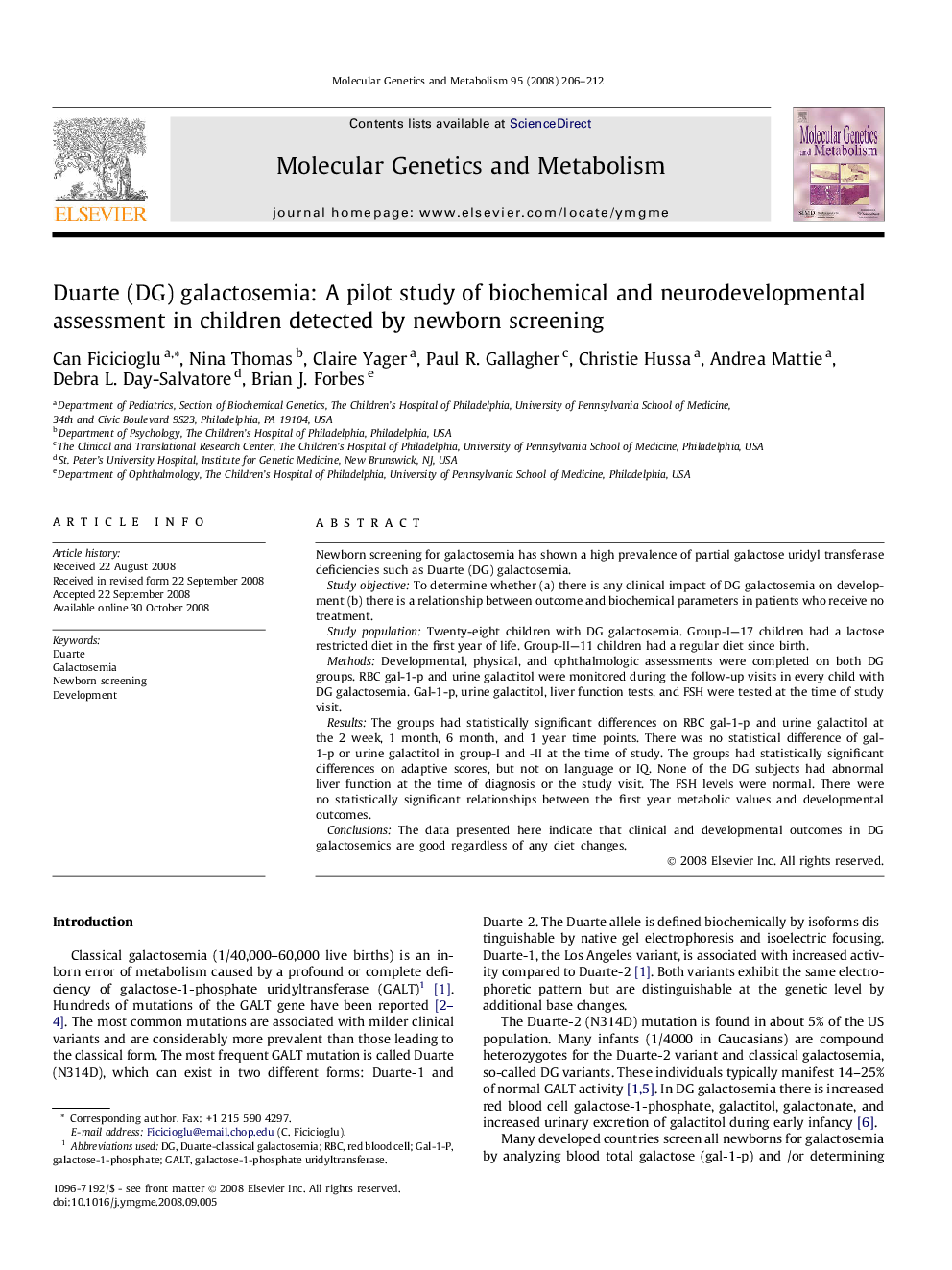| Article ID | Journal | Published Year | Pages | File Type |
|---|---|---|---|---|
| 1999889 | Molecular Genetics and Metabolism | 2008 | 7 Pages |
Newborn screening for galactosemia has shown a high prevalence of partial galactose uridyl transferase deficiencies such as Duarte (DG) galactosemia.Study objective: To determine whether (a) there is any clinical impact of DG galactosemia on development (b) there is a relationship between outcome and biochemical parameters in patients who receive no treatment.Study population: Twenty-eight children with DG galactosemia. Group-I—17 children had a lactose restricted diet in the first year of life. Group-II—11 children had a regular diet since birth.Methods: Developmental, physical, and ophthalmologic assessments were completed on both DG groups. RBC gal-1-p and urine galactitol were monitored during the follow-up visits in every child with DG galactosemia. Gal-1-p, urine galactitol, liver function tests, and FSH were tested at the time of study visit.Results: The groups had statistically significant differences on RBC gal-1-p and urine galactitol at the 2 week, 1 month, 6 month, and 1 year time points. There was no statistical difference of gal-1-p or urine galactitol in group-I and -II at the time of study. The groups had statistically significant differences on adaptive scores, but not on language or IQ. None of the DG subjects had abnormal liver function at the time of diagnosis or the study visit. The FSH levels were normal. There were no statistically significant relationships between the first year metabolic values and developmental outcomes.Conclusions: The data presented here indicate that clinical and developmental outcomes in DG galactosemics are good regardless of any diet changes.
